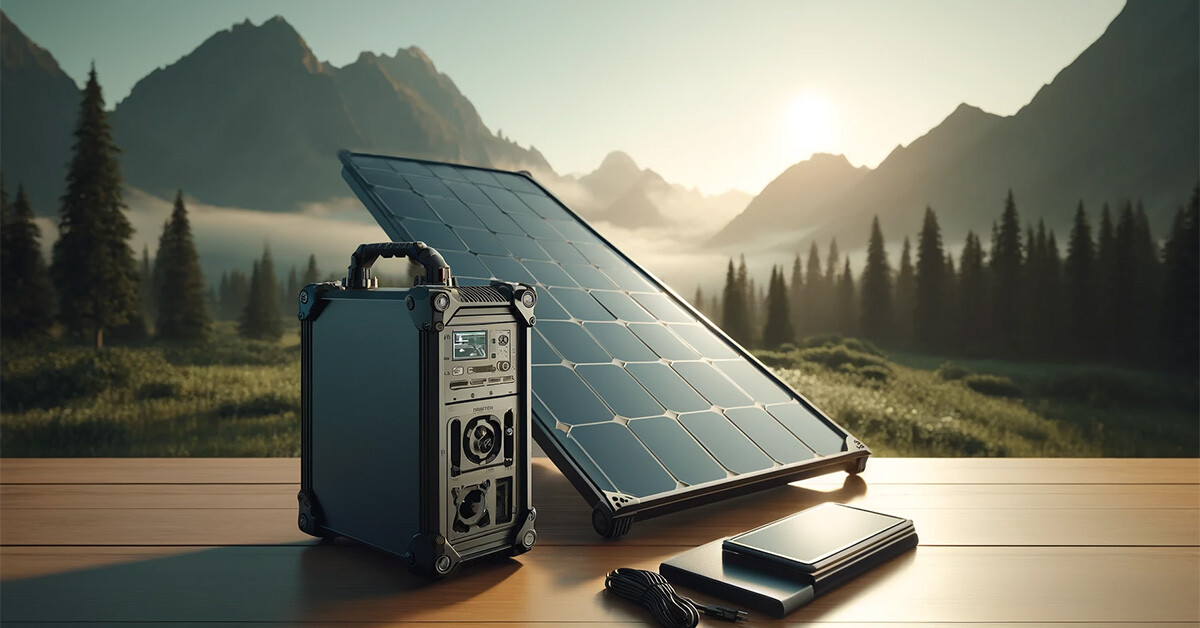Electric hookups for tent camping can transform your outdoor adventures. Charging phones, powering lights, and even chilling food becomes a carefree reality. Once you see how easy it is to have a portable camping power source, you’ll never turn back.
There are many ways to get electricity for camping. We’ll cover the top options, including:
- Camping solar generators
- Portable battery banks
- Campground outlets
- Fuel generators
Whether you want to buy one of the best solar generators or stick to campsites with electrical outlets, this brief introduction will help you get what you need to have an electric hookup for a tent.
Since solar generators are the best way to bring electricity for camping, we’ll also do a more thorough look into that option after this full list of camping power sources.
We carefully select the products and services we link to. If you buy through our links, we may earn a commission. There’s no extra cost to you and it helps us provide this information.
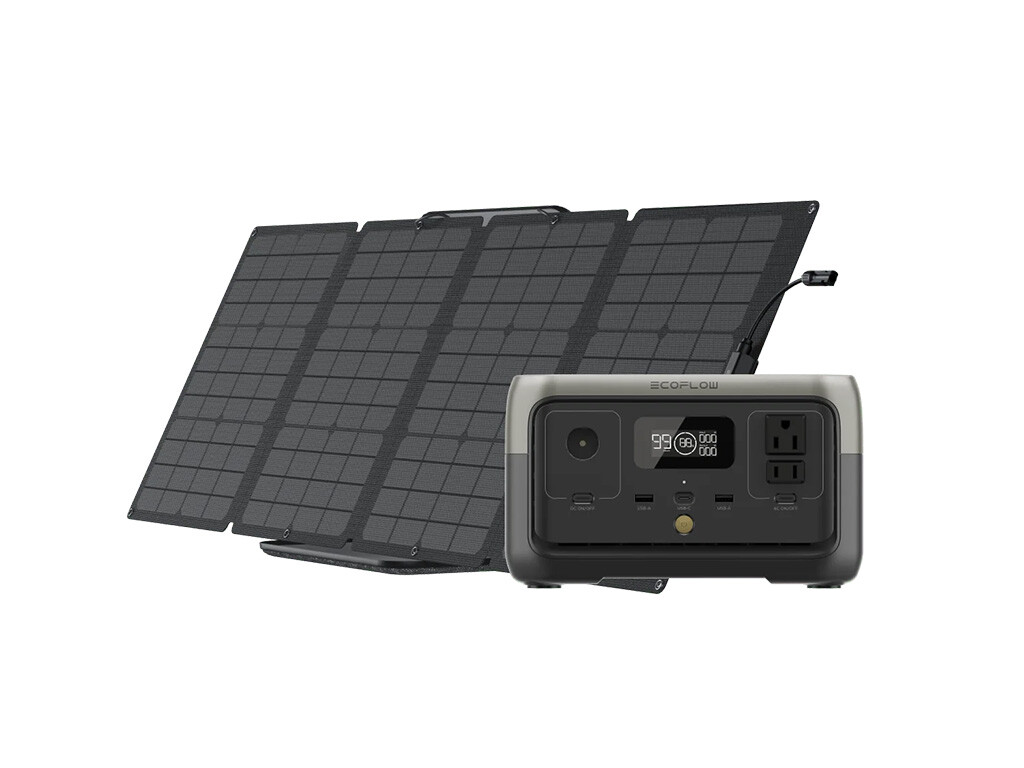
|
EcoFlow RIVER 2 Solar Generator with 110W Portable Panel |
Buy on EcoFlow Buy on Amazon |

|
BLUETTI AC180 + PV200 Solar Generator Kit |
Buy on Bluetti Buy on Amazon |
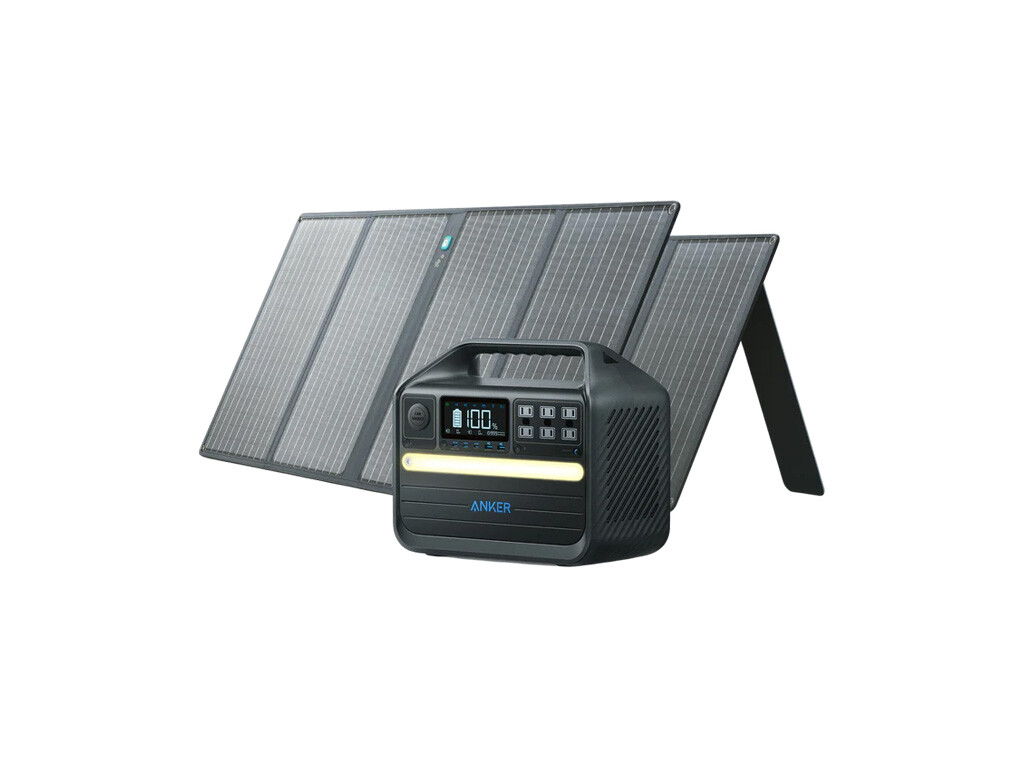
|
Anker 555 Solar Generator + 2 × 100W Solar Panel |
Buy on Anker Buy on Amazon |
Tent Camping Electricity Options
There’s nothing wrong with camping without electricity. But in today’s world, having a camping power source helps you:
- Use your phone or camera to capture the moment
- Power lights, stereos, and other campsite comforts
- Run portable appliances like refrigerators, induction stovetops, and more
You can make this happen whether you want to camp near others in an established campground or if you want to escape it all and find a remote campsite. There are no limits to having an electric hookup with a tent.
Let’s dive through the options, starting with the most exciting, robust, and flexible off-grid electrical systems for camping. The solar generator.

Portable Solar Generator: Electricity Anywhere
We’re fortunate to live at a time where energy independence is a reality. You can use solar generators as the best way to get electricity while camping. But they’re also useful as home backup systems, off-grid energy solutions, and having a power source on the go for events and road trips.
A solar generator is a device that helps you capture, store, and use electricity. They’re also known as portable power stations.
And despite the name, it is more flexible than you likely think. They can use power from solar panels, vehicles, outlets, and basically any electrical source you can find.
Even on solar power alone, they can work any time of day and through any season. And as long as you get one for your needs and pair it with the right portable solar panel, they can power basically any device you can imagine, from any place. You’ll have an electric hookup for your tent and beyond.
Since this is the best option for camping with electricity, we’ll dive into more details about solar generators after this list covering the main options.
Pros
- Powerful batteries that can hold a lot of energy
- Accept charging from large solar panels, vehicles, home outlets, and other sources
- Include USB and AC outlets to use for nearly any device
Cons
- Understanding solar generator sizes is crucial
- You’re going to get hooked on portable power
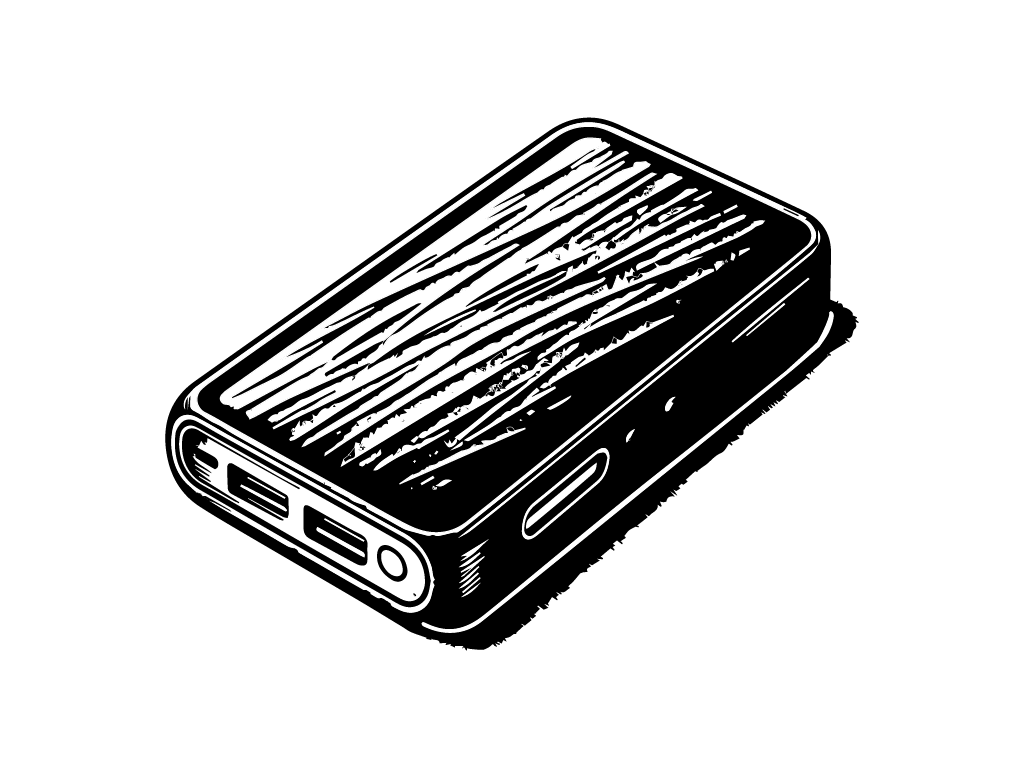
Portable Battery Banks: Lightweight Power
A smaller alternative to solar generators are portable battery banks. These are compact devices that offer some portable electricity for camping. If you just want to charge your phone while camping or keep other small devices juiced up, portable battery banks are ideal.
The major difference is that portable battery banks, also known as portable chargers, don’t have the extensive charging options or outlets that solar generators have. And the battery is much smaller.
Many portable battery banks offer charging input from a type of USB outlet, which can be charged at home before your trip to bring electricity camping. Or you can pair them with small solar panels to top off in the wilderness.
These camping power sources usually have at least two USB outputs. You can charge phones, camera batteries, personal locator beacons, USB light strips, and other low-watt camping electronics.
But these devices do NOT have a camping power inverter with a regular 110V household plug. For that, you’ll have to step up to a solar generator.
Pros
- Compact electrical power source for camping
- Affordable and easy to bring anywhere
- Can accept charging from solar or outlets
Cons
- Limited electrical capacity, charging input, and output
- Does not feature a power inverter for 110V AC devices (home outlet)

|
Anker 337 Power Bank (PowerCore 26K) |
Buy on Anker Buy on Amazon |
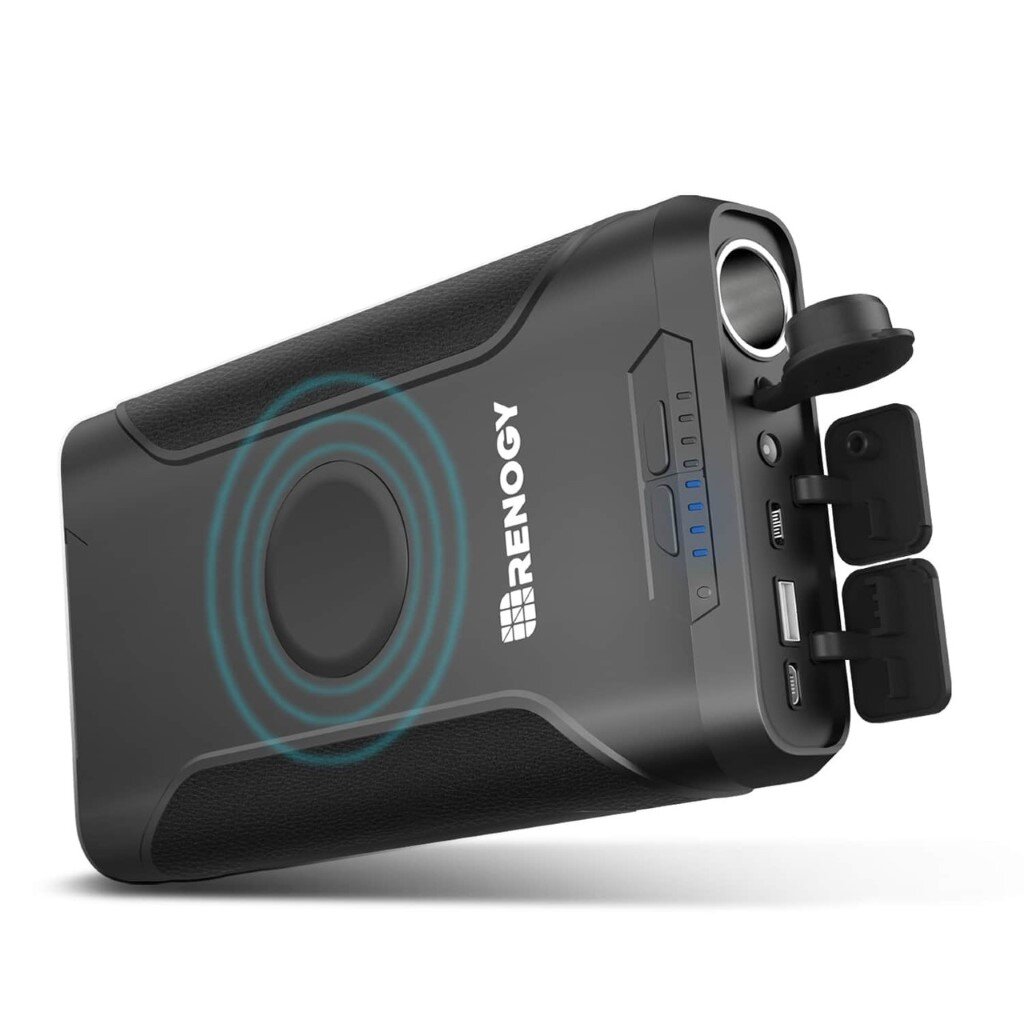
|
Renogy 72000mAh Power Bank With 60W Output |
Buy on Renogy Buy on Amazon |

|
Anker 737 Power Bank (PowerCore 26K for Laptop) |
Buy on Anker Buy on Amazon |

Campground Outlets: Unlimited Camping Electricity
Many established campgrounds offer a power source for tent campers. Some are regular 110V AC outlets like you have at your home, and others are larger 30 amp or 50 amp AC outlets made to provide electricity for an RV.
In either case, you can use these power sources as an electric hookup for tent camping.
If you need a camping power source while you’re staying at an established campground, make sure to verify the options before you book. Although many places have them, some do not.
Also, check to see what type of outlet will be at your campsite. If you will only have access to a 30 amp or 50 amp outlet, you may need to bring an adapter. These convert the unusual plug shape into the normal 15 amp shape found in houses.
These useful adapters come in 30-amp and 50-amp options due to differences in the outlet design. Make sure you get one that has the female side matching your 110V (15-amp) plugs. Many RVers use the opposite style adapter (which won’t work to plug things into a high-amp outlet) as they are plugging in high-amp RV systems into low-amp 110V wall outlet electrical supply.
Pros
- Hassle-free camping power source
- Basically limitless energy
Cons
- Not portable
- Dependent on campground’s power supply
- Might require an adapter
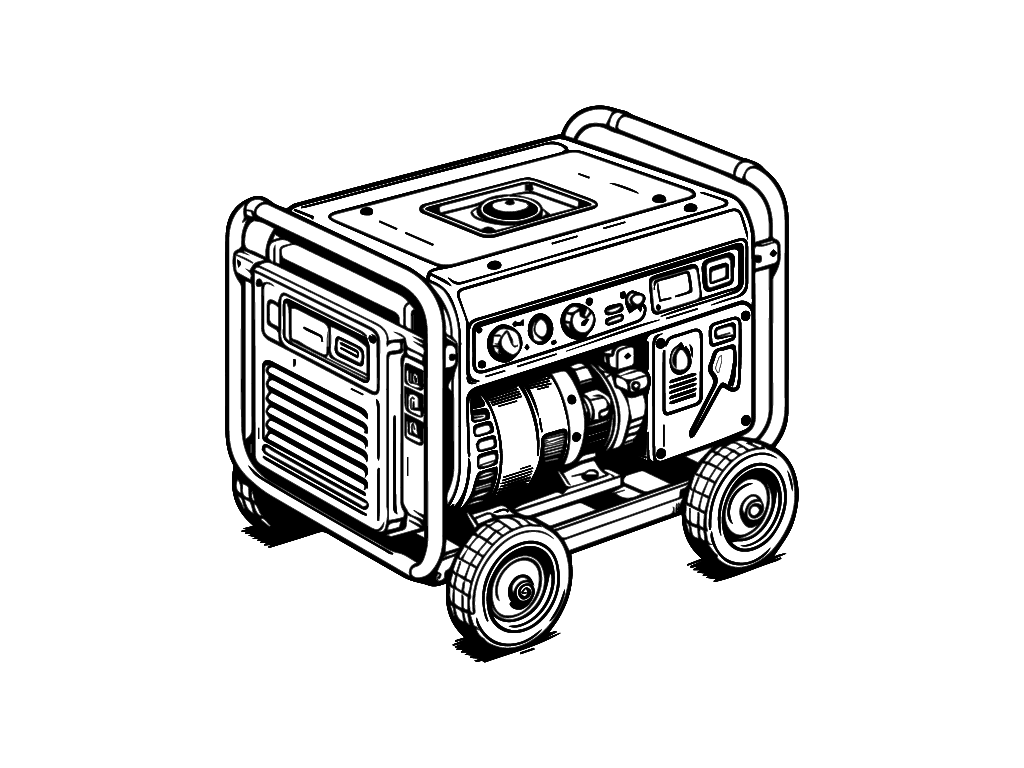
Fuel Generators: Noisy But Powerful
It wasn’t too long ago that many camping areas were full of a specific noise. It wasn’t birds chirping or kids playing. It was the engine of a small generator rumbling along to provide a camping power source.
Thankfully, this sound is becoming much less common. As solar panels and solar generators have grown in popularity, many have ditched the traditional generator in exchange for the fuel-free simplicity of solar.
Fuel generators may still have a role in creating an electrical hookup for tent camping. For example, if you have very serious heavy-duty electrical needs, it’s hard to beat the price-to-performance of fuel generators.
They can also work well in conjunction with solar generators as a backup solution if you can’t charge with solar. Perhaps a nasty storm rolled through or you find yourself at a campsite without direct sunlight.
By connecting a fuel generator to a solar generator, you can quickly charge the battery pack within the solar generator. Then you can shut off the fuel generator and use the solar generator’s battery bank as you need it, without the noisy engine running.
Pros
- High electrical output
- Low price point
- Can help charge solar generator
Cons
- Relies on constant fuel supply
- Maintenance required
- Noisy camping power source
This Pulsar 2,200W Portable Dual Fuel Generator is a solid option. For a more advanced option, see the EcoFlow Smart Generator, perfect for the Delta Pro.
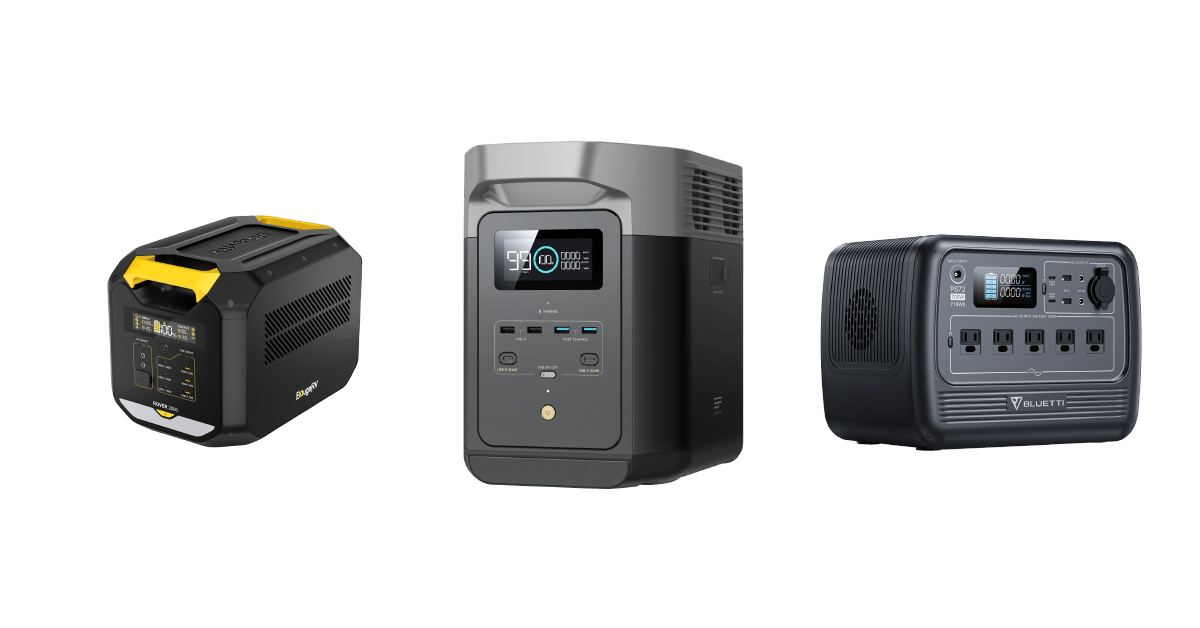
Camping Electricity: Solar Generators 101
If you really want to know how to get electricity while camping, a solar generator is your best bet. They’re becoming a regular part of a camping kit, bringing 21st century technology to the great outdoors.
Let’s review solar generators for tent camping to see how they work. Then we’ll walk through what you need to know before buying one the best solar generators.
You can also click here to see the Best Solar Generators for Camping.
How Do Camping Solar Generators Work?
Solar generators are able to capture, store, and supply electricity. They are lightweight, ultra-portable camping power sources that you can use anywhere.
It all starts with capturing power. Solar generators have sophisticated charging systems that can accept charge from solar panels, regular outlets, and even other 12V sources like a car’s cigarette lighter outlet.
As the charging system pulls in electricity from whatever source you have connected, it stores the energy in a built-in battery. The best solar generators use advanced lithium batteries that provide for excellent energy storage in a lightweight and compact battery pack.
Once you have the energy captured and stored, you can use the solar generator. Whether you want a power source for camping, or bring electricity to your backyard, the park, or any event, a solar generator is up for the task.
How To Choose a Solar Generator for Tent Camping
There is an entire world of solar generators to choose from. The main differences in solar generator features are:
- Charger: How much energy can be pulled in at one time, especially important for solar panels
- Battery: How much energy is stored, which translates to how long the power supply lasts
- Inverter: Strength of the AC outlet which determines what devices you can plug into it
To identify what solar generator is best for your camping electricity needs, start by figuring out what you want to power. Here’s a general idea of the three main categories:
- Starting small: A few small electronics, like recharging phones or powering LED lights
- Growing needs: Charge devices, run portable fridge, and power an entertainment system
- Heavy-duty: The above plus a mini split air conditioner or induction stovetop
Depending on where you fall along this spectrum, you choose the solar generator that meets your electric hookup for a tent needs. Figure out what amount of solar panels will work, then carefully inspect the battery size and inverter capability to make sure you’ll have nonstop power.
For example, those who want to power small devices while camping can look at entry-level solar generators.
A small solar generator comes with a battery with ~200 to 400Wh of storage. That’s enough for at least 20 complete phone charges and it can handle LED lights without a problem. You may not even need a solar panel if you just want to charge it up before your trip. And you don’t need to worry much about the AC inverter because many small devices use the USB ports, which don’t use the inverter.
On the other end of the spectrum, heavy-duty users will want a battery with 2,000Wh or more. And to keep that charged up, a large solar panel array of 500W (or more) is a good idea. And these will come with a powerful AC inverter, which might be necessary for an induction stovetop or mini split that only use AC outlets (household plug).
Most people fall somewhere in the middle. Enough to charge phones and perhaps run somewhat larger devices, like a portable fridge. Or perhaps a Starlink system and a laptop. But not an induction stovetop. These people will usually fall around the 1,000Wh to 2,000Wh battery pack and inverter of at least 2,000W.
Whatever the case, a solar generator can create an electric hookup for tent camping. You buy it once from a reputable company, then never worry about a power source while camping ever again. And you’ll also have a backup electrical source for your home or when out on other adventures.

|
EcoFlow RIVER 2 Solar Generator with 110W Portable Panel |
Buy on EcoFlow Buy on Amazon |

|
BLUETTI AC180 + PV200 Solar Generator Kit |
Buy on Bluetti Buy on Amazon |

|
Anker 555 Solar Generator + 2 × 100W Solar Panel |
Buy on Anker Buy on Amazon |
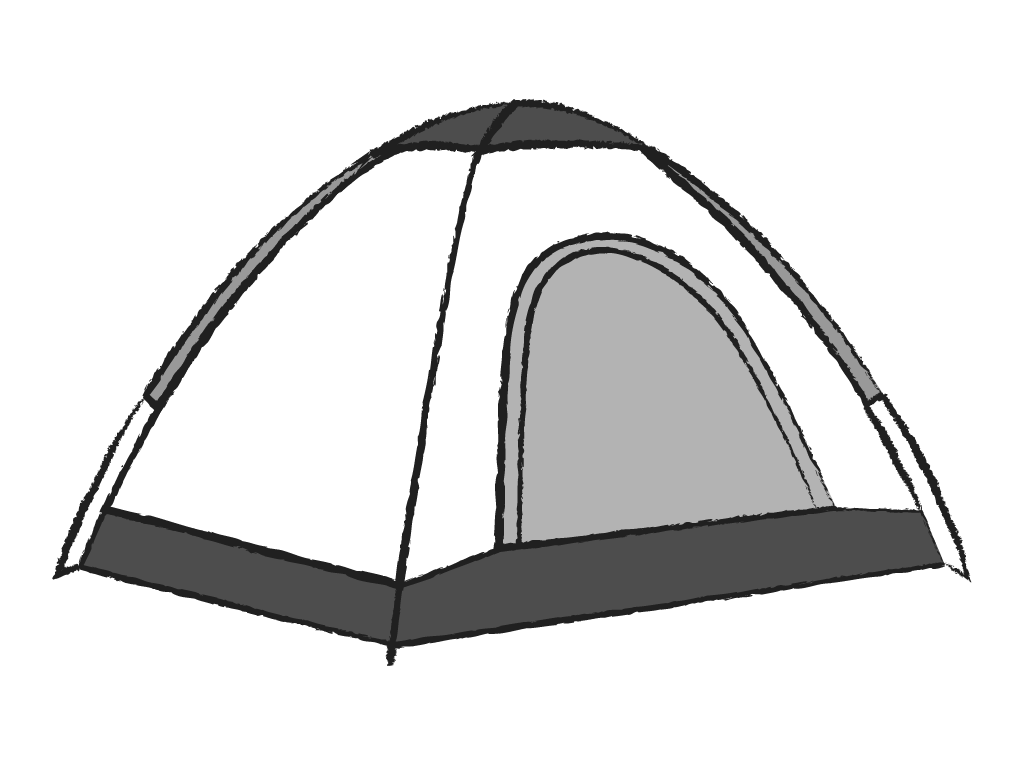
Wrap Up: Electric Hookup for Tent
Knowing how to bring electricity camping makes it so you can use your phone, lights, and other electrical devices no matter where you go.
The best way to bring an electric hookup for tent camping is with a solar generator. These innovative devices can capture energy from a variety of sources, store it in a built-in battery, and let you plug in many different devices through its DC and AC plugs.
You can also get a smaller portable battery pack to charge phones or camp at campgrounds with electrical outlets. You might need an adapter for some high-powered campground outlets.
To learn more about solar generators and solar panels, start by calculating how many solar panels you need. Or start looking the Best Solar Generators for Camping.

